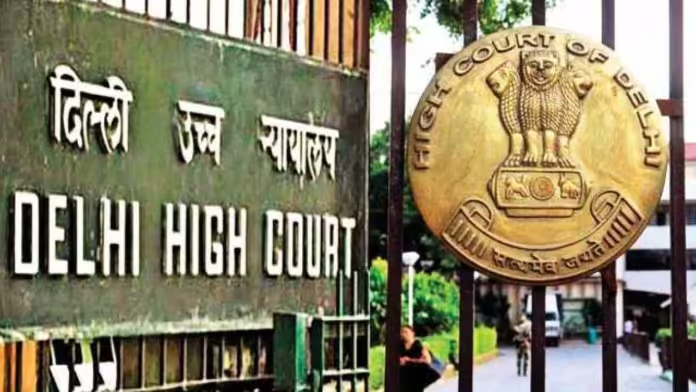The Delhi High Court, comprising Justice V. Kameswar Rao and Justice Ravinder Dudeja, has directed a re-examination of a Central Armed Police Forces (CAPF) candidate declared unfit following tattoo removal surgery. The Court ruled that the Review Medical Board should have allowed sufficient time for the scar to heal before examining the candidate.
Court’s Observation and Ruling
The High Court highlighted that while the advertisement for the position required candidates to meet all eligibility criteria before applying, the petitioner, Mr. Akshay Choudhary, removed his tattoo only after clearing the written examination. The Court noted:
“The petitioner may be called a fencesitter for removing the tattoo only after passing the written examination. However, the fact remains that the petitioner removed the tattoo from his right forearm.”
Case Background
Mr. Akshay Choudhary applied for the Assistant Commandant (Group A) position in CAPF. After undergoing tattoo removal surgery, he cleared the written examination but was later deemed unfit during the Physical Standard Test (PST), Physical Efficiency Test (PET), and Medical Standard Test (MST) by the Indo-Tibetan Border Police (ITBP) due to a tattoo on his right forearm.
Following this, Choudhary underwent a second tattoo removal surgery and applied for a Review Medical Examination (RME). Despite the surgery, he was again declared unfit due to an unhealed scar. However, a subsequent medical examination on April 20, 2024, showed no visible tattoo residue, leading Choudhary to challenge the Medical Board’s decision as misconceived.
Government’s contention
The Ministry of Home Affairs argued that the eligibility conditions explicitly stated that tattoos are only permissible on traditional sites, such as the inner aspect of the left forearm or the dorsum of the hands. Choudhary’s tattoo on the front side of his right forearm did not comply with these conditions.
Delhi High Court’s Consideration
The High Court acknowledged that the guidelines allowed tattoos depicting religious symbols or figures and names on the inner left forearm or dorsum of the hands but not on the saluting limb. The Court observed:
“Post-surgery, no tattoo was present on the petitioner’s forearm. The Tattoo Clause did not explicitly state that an unhealthy or unhealed scar from tattoo removal would disqualify a candidate.”
The Court found that the Review Medical Board erred in examining the petitioner too soon after the surgery. It ruled that adequate healing time should have been provided before determining his fitness.
Order for Re-examination
The High Court directed a re-examination of the petitioner’s forearm by a new Medical Board to assess the current state of the scar. If the new assessment is favourable, the respondents are instructed to consider Choudhary’s appointment as an Assistant Commandant, subject to vacancy availability.
Case Details
Case Title: Akshay Choudhary Vs Union of India Ministry of Home Affairs & Ors. W.P.(C) 5602/2024


